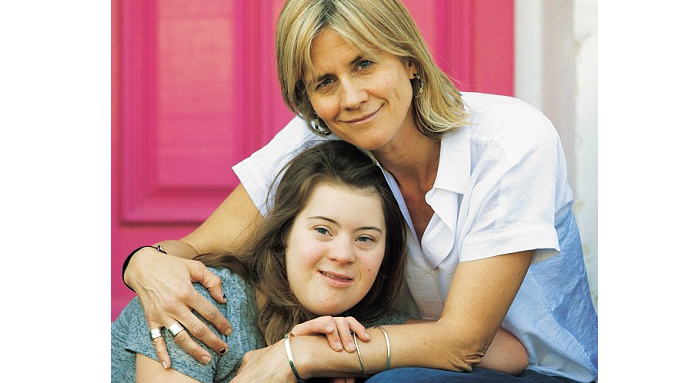Beth Beaumont Epstein, like most 15-year-old girls, listens to her favorite bands and dreams of getting married someday. She loves to swim and wants to attend college after graduation.
But when she was born, doctors told her parents, Henny and Steve, that Beth would never amount to much because she has Down syndrome.
Her mother, Henny, told The Daily Mail that it took her a while to come to terms with her daughter’s disability. She listened to the doctors and the voices in society that treated her daughter as a lesser human being. As time went by, she learned to cope and later accept and love her daughter for who she is.
She recently wrote a book, “Hole in the Heart: Bringing Up Beth,” to share her family’s journey and to encourage other parents who may be struggling with the same fears that she was.
“Children like Beth are invisible: they don’t feature in storybooks, and they’re not pictured in clothes catalogs or toy adverts,” Henny said. “They need to be seen as people, not as different creatures from another species or another planet.”
The family’s struggles began when Beth was born. Before she left the hospital, doctors diagnosed her with Down syndrome and painted a scary picture of what life would be like for her and her parents.
If prenatal testing had detected Beth’s condition while she was still in the womb, Henny admitted honestly that she probably would have given into her fears and aborted her daughter. Now, she is very glad that she did not.
“I can’t imagine life without her,” Henny said.
Here’s more from the report:
They were also told that as Beth grew up it would become clear that she wasn’t like other children: she would be ‘mentally retarded’ and would never learn to read.
CLICK LIKE IF YOU’RE PRO-LIFE!
One doctor told Henny and Steve that, if they were lucky, Beth just might eventually be able to distinguish between the signs for ‘men’ and ‘women’ on public toilets.
The one shred of comfort they were given was that their child was likely to die before them. ‘How is that comforting?’ Henny recalls, incredulous.
As it turned out, this information was incorrect – these days people with Down’s can expect a normal lifespan. Beth can read, she enjoys school and swimming, and loves singing along to her favourite pop stars Justin Bieber and One Direction.
She loves acting; she adores playing with her siblings. ‘She likes annoying Matty by plotting to steal her boyfriend,’ laughs Henny. In almost every way, she’s an average teenager. And once she has overcome an initial shyness, she loves being the centre of attention. In other words, life with Beth is almost normal – but that’s not how the future was portrayed to Henny and Steve.
Today, Beth’s parents said they could see her getting married someday and living semi-independently. They said she loves to cook and possibly may pursue a career with food. The 15-year-old also wants to attend college after she graduates, according to the report.
“We’re not ruling anything out,” her mother said.
Steve added that he was disturbed by the societal push for parents to have a “perfect” child and the frequent suggestions to abort unborn babies like Beth. He said there is no such thing as a perfect child, and thinking that there is pushes society down a slippery slope.
“How far do you go to achieve that impossible dream?” Steve said. “The whole thing makes me angry, because it feels like a personal attack on Beth. When people talk about screening Down’s out, this is who they’re talking about: my wonderful daughter.”
Because of prenatal testing and the continued stigma against children with disabilities, abortion is frequently suggested to parents of unborn babies with Down syndrome. Studies estimate as many as 90 percent of unborn babies diagnosed with Down syndrome are aborted.
Today, people with disabilities like Down syndrome have more opportunities than ever before. Thanks to modern medical advancements, many are living long, fulfilling lives. One study even found that 99 percent of individuals with Down syndrome said they were happy with their lives. However, societal prejudices have not gone away.
“They assume the worst,” Henny said. “They don’t know how much a child like Beth can achieve. She did learn to read, and it’s not only a question of what she achieves in her life, it’s also what she teaches others.”
Henny said she hopes that her journey and Beth’s life will help others see how doctors can be wrong and how society’s perception of people with disabilities is so misguided.
“She’s my amazing daughter with so much to give and so much to live for,” Henny said.








